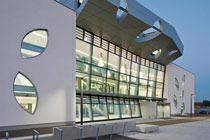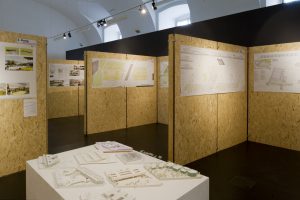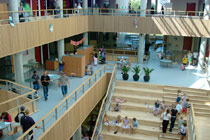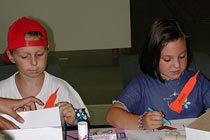Exhibition
Flying Classrooms
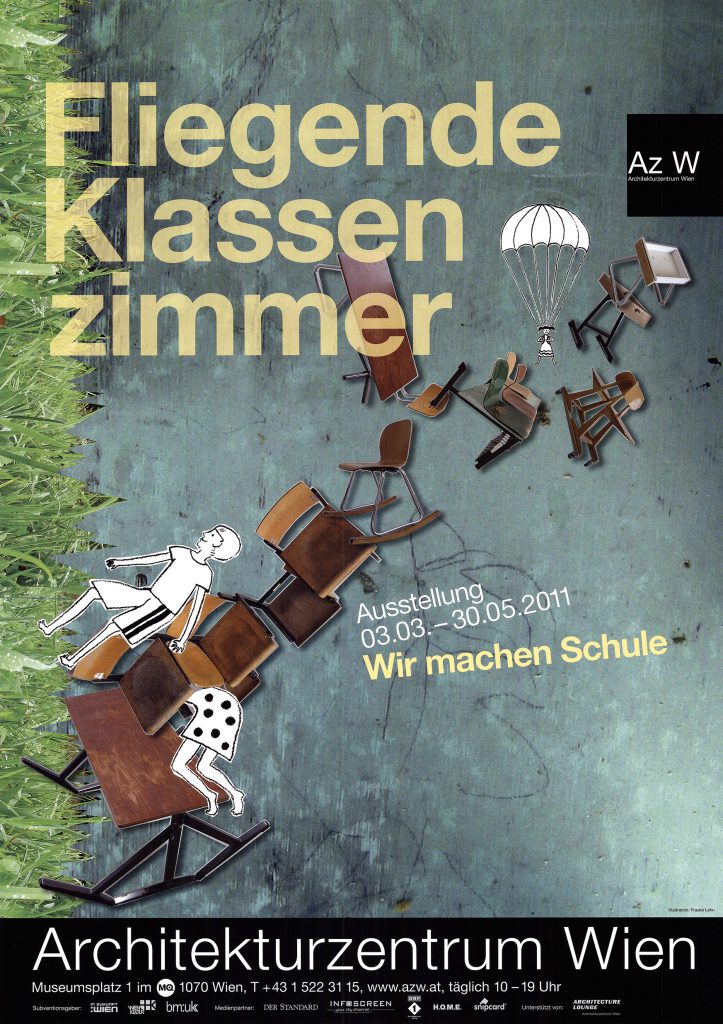
Exhibition poster: Flying Classrooms
© Architekturzentrum Wien, illustration: Frauke Lehn, graphic design: LIGA: graphic design
Opening of the exhibition
Dietmar Steiner, director of the Az W, welcome speech
Christian Kühn / Antje Lehn / Renate Stuefer, curators of the exhibition
Claudia Schmied, federal minister for Education, Arts and Culture
The rooms we learn and teach in have hardly changed over the past hundred years. The classroom is still 9 metres x 7 metres in size and the primary location for lessons that are held in an hourly cycle — even though teachers and architects agree that contemporary teaching methods are far more varied and require appropriately flexible types of classroom.
The subject of the exhibition is the mutual interrelationship between the architectural space and teaching and learning. It addresses all those who are involved directly or indirectly with education and the basic spatial requirements for teaching and learning: primarily pupils, teachers, parents, architects and politicians. The exhibition provides an opportunity to learn about the development of school building and its background. Visitors are invited to take a playful approach to engaging with space in a 1:1 installation, and develop their own vision for the school of the future’.
The interactive installations engage the visitor and provide an impetus for communication about visions of future school architecture. A school furniture collage, stretchable fabric rooms (‘Raumschläuche’), and a pavilion that is used instead of a classroom in one Danish school all challenge existing conventions and are open to exploration. The history of school architecture over the last 200 years is documented using original plans and models, and includes innovative examples from the Az W archive of schools built between 1950 and 1980.
Flying Classrooms provides a space for a dialogue and the exchange of experiences between pupils, teachers and parents on the one hand, and architects and politicians on the other. It is a place for new ideas, common goals and solutions. The exhibition stimulates creative thinking about the concept of school through spatial perception and social interaction: the learning environment is fundamental to how we grow.
The exhibition is accompanied by a publication in the form of a book called ‘räume bilden – Wie Schule und Architektur kommunizieren’ ISBN 978-3-85409-577-4, Lehn, Stuefer (Hg.) published by Löcker Verlag.
idea, concept and design:
Christian Kühn, Antje Lehn, Renate Stuefer
supplemented in cooperation with the Az W
project coordination Az W Gudrun Hausegger
thanks to:
kunsthaus muerz
Institut für Architektur und Entwerfen, Technische Universität Wien
Institut für Kunst und Gestaltung 1, Technische Universität Wien
Institut für Kunst und Architektur, Akademie der bildenden Künste, Wien
Public Funding:
Geschäftsgruppe Stadtentwicklung und Verkehr
Bundesministerium für Unterricht, Kunst und Kultur
Geschäftsgruppe Kultur und Wissenschaft
Sponsor: ARCHITECTURE LOUNGE

